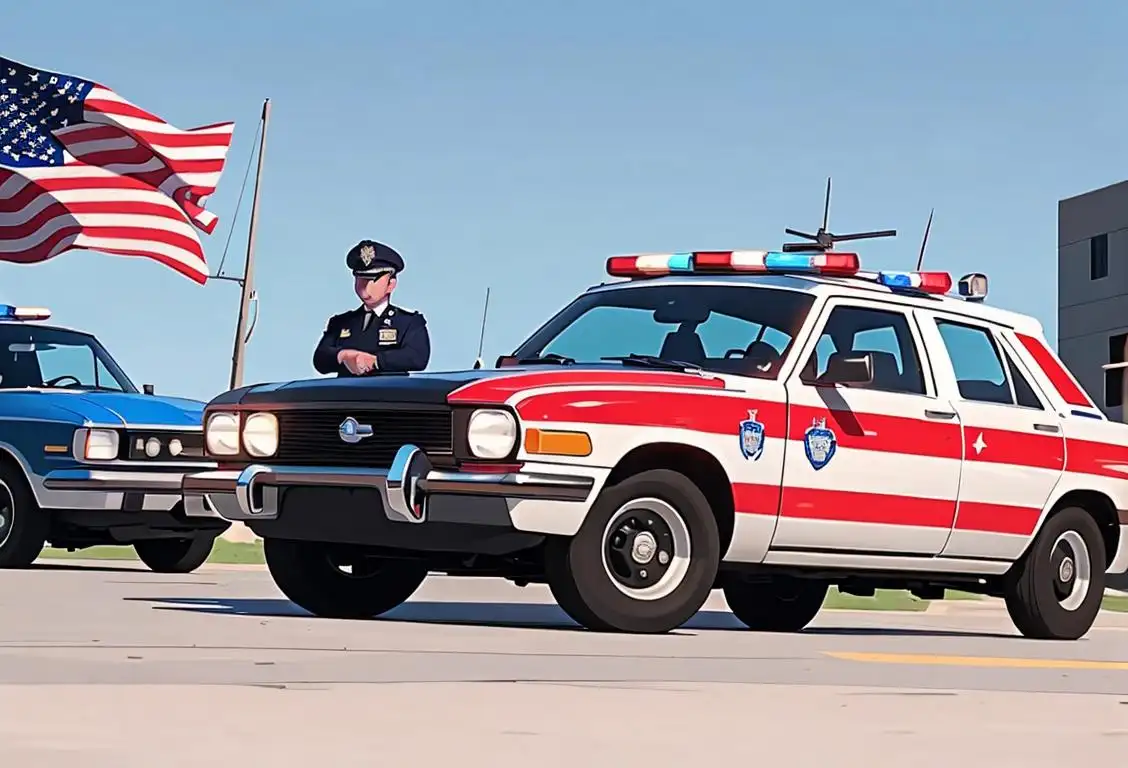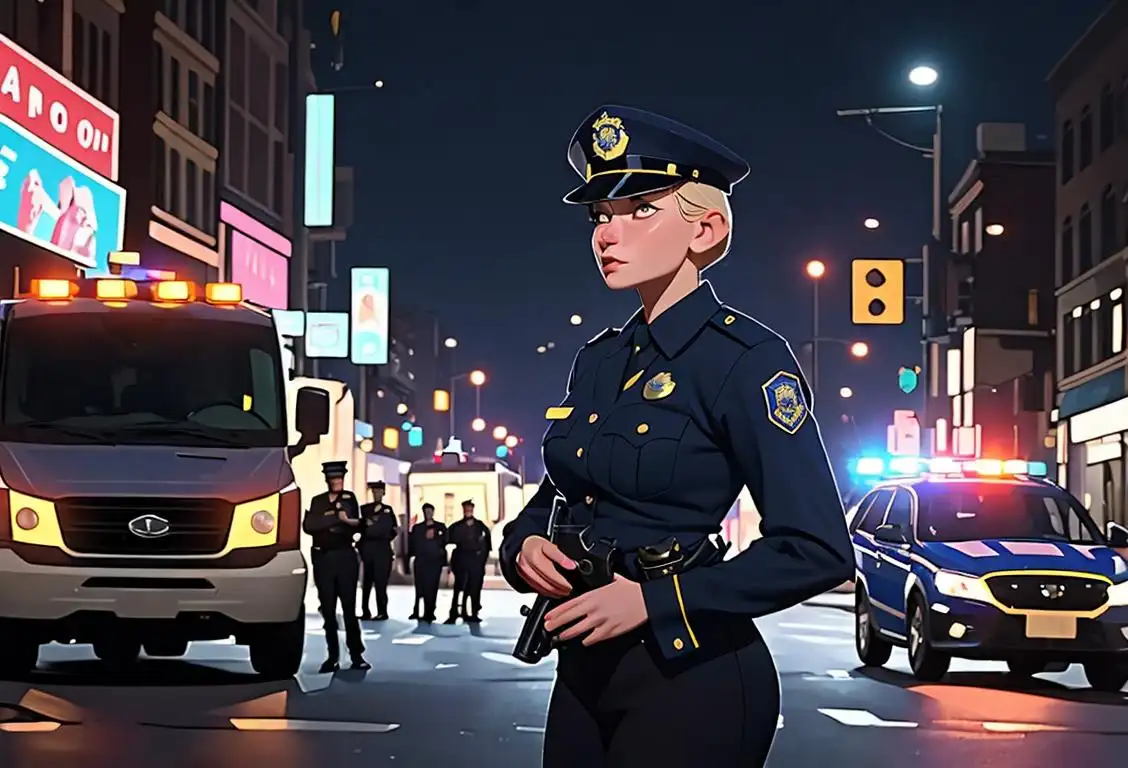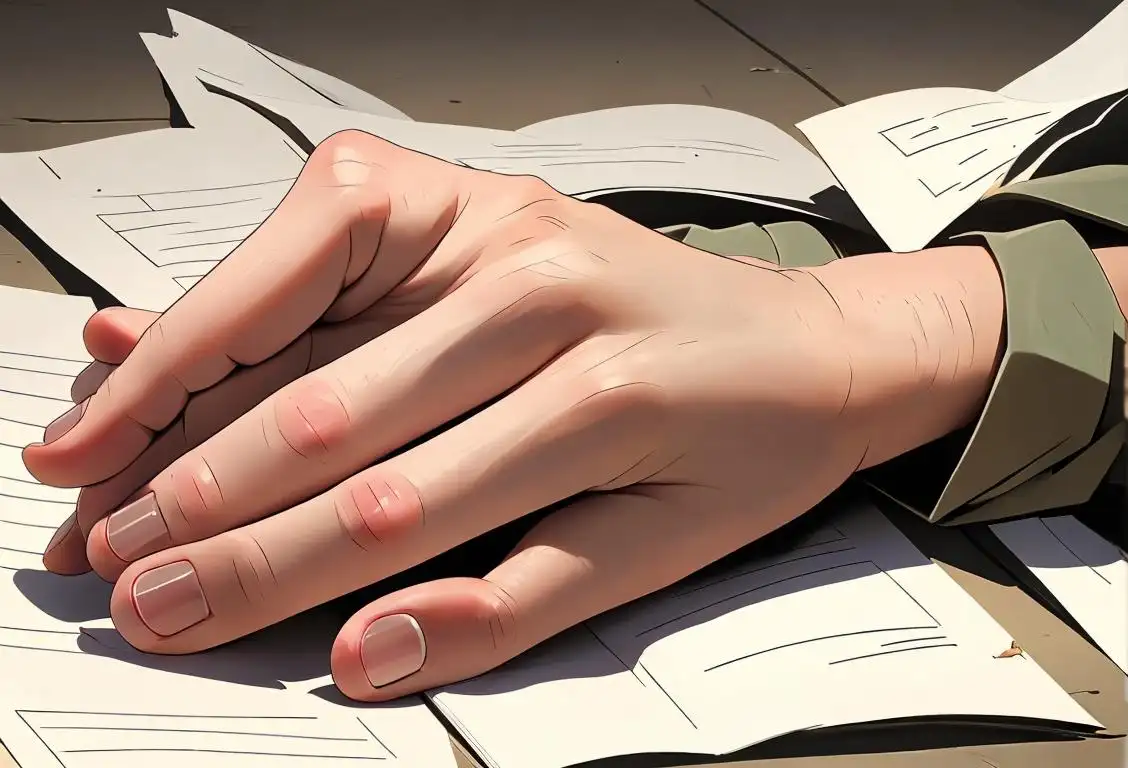National Police Day

On your marks, get set, 'whoop whoop'! That's right, folks, it's time again to celebrate our brave boys and girls in blue, for it's National Police Day! It seems like crime has taken a day off as the number of mentions for this day soared to a whopping 2790 times, peaking preciously on January 27, 2018. Grab your doughnuts and sirens, it's time for a tribute to our finest protectors!
When is Police Day?
It's national police day on the 27th January.
From Bobby's to Badges
It all begins in the cobblestone lined streets of England with the friendly neighborhood 'bobby'. But boy oh boy, how the times have changed! Now, our brave frontline workers, in a myriad of uniforms and ranks, protect us day and night, in rain or shine, from those who might mean us harm. And what better way to show our appreciation than with National Police Day?
Rolling in the Rhyme
Peaking our internet interest on January 27, 2018, National Police Day shot to fame with a mind-boggling 2790 mentions. Clearly, we're feeling the camaraderie. Try saying that five times fast! 'National Police Day, National Police Day...' Maybe leave the tongue twisters to us, and stick to celebrating!
Law and Order: The Doughnut
What pairs better than the boys in blue and this sweet delight? Like peanut butter to jelly, like cheese to fine wine, or like sunshine to a perfect weekend, it's the good old 'Cop and Doughnut' duo! On this day, and indeed every day, let’s raise our frosted, glazed and sprinkled treats to our tireless law enforcers!
History behind the term 'Police'
1667
Creation of the Word
The term 'police' originates from the French word 'police,' which in turn has its roots in the Latin word 'politia' meaning 'government' or 'administration.'
1667
Early Usage in France
In 1667, the term 'police' first appeared in France, where it was used to describe the regulatory and administrative functions of the government. It encompassed public order, crime prevention, and social welfare.
18th Century
Expansion of Policing
During the 18th century, the concept of policing began to spread across Europe. Different countries adopted various forms of policing systems, often influenced by the French model. Policing became more centralized and organized, with the establishment of public institutions responsible for maintaining law and order.
1829
Birth of Modern Policing
In 1829, Sir Robert Peel established the Metropolitan Police Force in London, which became the prototype for modern policing. Peel's approach emphasized the prevention of crimes, community cooperation, and the use of uniforms.
19th Century
American Policing
In the 19th century, policing in the United States underwent significant changes. The country witnessed the formation of municipal police departments, influenced by British and European models. Policing evolved to address the unique challenges of urbanization, immigration, and social unrest.
20th Century
Professionalization and Specialization
In the 20th century, policing continued to evolve, focusing on professionalization and specialization. Police departments adopted new technologies, such as automobiles and two-way radios, to improve their efficiency. Specialized units, such as vice squads and homicide divisions, were established to address specific types of crimes.
21st Century
Community Policing and Technological Advances
In recent years, the concept of community policing has gained prominence, emphasizing collaboration between the police and community members to address crime and social issues. Moreover, technological advancements, including surveillance systems, DNA analysis, and social media monitoring, have revolutionized the way police investigate and prevent crimes.
Present
Ongoing Evolution
The term 'police' has transcended its traditional meaning and has expanded to encompass not only law enforcement but also social services, conflict resolution, and community engagement. Policing continues to adapt to changing societal needs and challenges in the modern era.
Did you know?
Before radios, police officers in New England would use a system of synchronized mechanical dolls to signal the alert level, with each doll representing a different level of urgency! It's crazy to think about considering our modern technology, eh?Tagged
awareness fun remembrance history law enforcement police doughnutsFirst identified
10th April 2015Most mentioned on
27th January 2018Total mentions
2790Other days
Police Day
Law Enforcement Day
Former Prisoner Of War Recognition Day
Prisoners Of War Remembrance Day
Parents Day
Camera Day
Farmers Day
Foundation Day
Liberation Day
Teacher Appreciation Day








